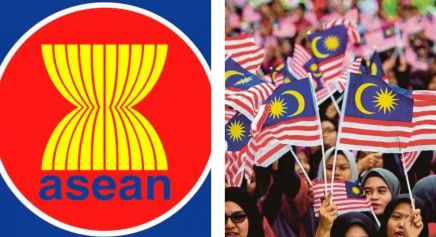By Maybelene Marcelino
KUALA LUMPUR – The Association of Southeast Asian Nations (ASEAN) has resolved to shift its focus from mere declarations to concrete actions that will benefit people, particularly the rural communities within the region.
Inclusive growth takes centre stage
In an exclusive interview with national news agency Bernama, Malaysian Deputy Prime Minister Datuk Seri Ahmad Zahid Hamidi said that as the bloc’s current chair, Malaysia is keen to leverage ASEAN’s role in bridging the rural development gap through comprehensive and integrated regional planning.
He revealed that the nation’s strategy is to create a regional synergy, preventing rural areas from being left behind in the rapid pace of technological change.
According to him, key initiatives include digitalization, expansion of Technical and Vocational Education Training (TVET) and rural women empowerment.
“Economic benefits must be enjoyed by all levels of society, including those living in rural and remote areas,” he said.
YOU MAY ALSO LIKE: ASEAN poised to become ‘middle power’ in multipolar world

Aiming for tangible impact on the ground
“We want this year’s ASEAN to deliver real benefits, rather than just hosting meetings and issuing declarations,” he stated.
Ahmad Zahid also hinted at the establishment of the ASEAN Villages Network (AVN) to foster collaborations and resource sharing between villages across the region and both the private and government sectors.
He said the AVN would focus on three key elements: Village Tourism, Digital Villages, and the “One Village, One Product” concept.
“Malaysia can leverage the AVN platform to promote rural products across ASEAN, thereby creating greater economic opportunities for rural communities,” the minister added.
Rural entrepreneurship
Furthermore, the official announced that Malaysia plans to introduce several other programmes, including the ASEAN business incubator, an expert exchange programme, and initiatives in renewable energy technology, as part of its efforts to strengthen rural entrepreneurship at the regional level.
He asserted that ASEAN recognizes the potential of the rural economy as a new driver of regional growth by increasing funding for rural technology startups and enhancing human capital development, particularly in agrotechnology, artificial intelligence and digital economy.
“I believe this is the step to ensure ASEAN 2025 has a direct impact on the people, especially the rural communities,” he said.
Push for Halal economy
With the Halal industry undergoing a dynamic transformation, Malaysia aims to lead ASEAN in catering to the rising demand for Halal-certified goods and services, both locally and internationally.
According to Ahmad Zahid, Malaysia views its ASEAN chairmanship as a strategic opportunity to strengthen co-operation in the halal sector, capitalizing on the global market, which is estimated to be worth USD3 trillion.
The deputy prime minister highlighted that with a population of over 240 million Muslims, ASEAN represents a vast and high-potential halal market.
“Through Halal Diplomacy, we aim to strengthen trade relations with countries such as China, Russia, India, and the Philippines,” he stated.
READ NEXT: Philippines eye ‘dream’ submarines as tensions with China escalate
